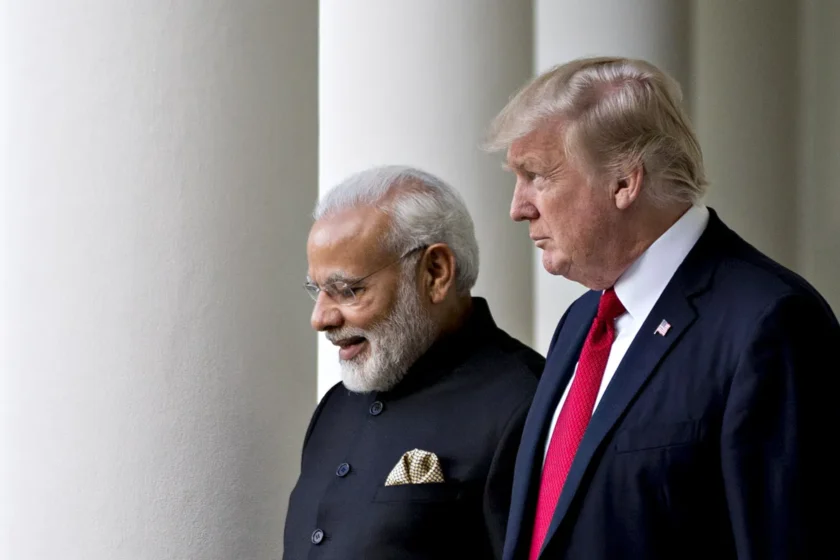Lucknow – Maulana Masood Azhar, the globally recognized leader of the Pakistan-based terrorist outfit Jaish-e-Mohammad (JeM), a group responsible for numerous deadly attacks in India, has claimed a significant personal loss. In a statement reported by BBC Urdu on Tuesday, Azhar asserted that India’s recent military actions, codenamed “Operation Sindoor,” resulted in the deaths of ten of his family members and four close associates.
This revelation comes in the wake of the Pahalgam bombing, an attack that tragically claimed the lives of 26 civilians. According to Azhar’s statement, “Operation Sindoor” was a direct retaliation for this incident, targeting nine alleged terrorist locations across Pakistan and Pakistan-occupied Jammu and Kashmir (PoJK). While details regarding the specific locations and the nature of the strikes remain unconfirmed by independent sources, Azhar’s claim marks a significant development in the ongoing tensions between India and Pakistan.
Born in 1968 in Bahawalpur, Pakistan, Masood Azhar’s life has been deeply intertwined with the history of Islamist militancy in South Asia. Raised in a devout household, with his father being a Deobandi priest and school principal, Azhar’s early education heavily emphasized religious instruction. However, his path diverged from traditional academia after completing the eighth grade. In 1989, he graduated from the Jamia Uloom Islamic Seminary, a turning point that immediately preceded his entry into the terrorist organization Harkat-ul-Ansar (HuA), a group then active in Afghanistan and Kashmir. [Note: Available information suggests HuA is no longer active].
Within HuA, Azhar initially focused on propaganda and motivational activities, utilizing his skills to publish militant periodicals. His role quickly expanded to include international fundraising and garnering support for jihadist causes. Reports suggest that he traveled extensively, including to Saudi Arabia, Mongolia, and the United Kingdom, to propagate his ideology and secure financial backing.
In early 1994, Azhar’s activities brought him directly to India. Under the guise of resolving a dispute between rival terrorist factions, he infiltrated the region but was soon apprehended in Khanabal, Jammu and Kashmir. His arrest led to his detention in various high-security prisons, including Tihar and Kot Balwal. During this period, the Federal Bureau of Investigation (FBI) reportedly interrogated him in connection with the 1995 kidnapping of six foreign tourists in Kashmir, an abduction carried out by a group demanding Azhar’s release. Tragically, only one of the hostages managed to escape, with the fate of the others remaining unknown.
The course of Islamist terrorism in the region was irrevocably altered in December 1999 with the hijacking of Indian Airlines Flight IC-814. The aircraft was commandeered and flown to Taliban-controlled Kandahar, Afghanistan. The hijackers, led by Azhar’s brother Ibrahim Athar, made a clear demand: the release of Masood Azhar from Indian custody in exchange for the safety of the passengers and crew. After days of intense negotiations and mounting pressure, the Indian government conceded to the demands, a decision that was widely criticized as a significant diplomatic failure.
Upon his release, Azhar made a public and defiant vow to continue his fight against India. His original organization, Harkat-ul-Ansar, soon faced international scrutiny, leading to its designation as a terrorist organization by the United States. In response, the group rebranded itself as Harkat-ul-Mujahideen (HuM).
The Rise of Jaish-e-Mohammed
Undeterred by his imprisonment and subsequent release, Masood Azhar swiftly established a new and more potent terrorist organization: Jaish-e-Mohammed (JeM). This occurred shortly after his release, with alleged backing from prominent figures and entities such as Osama bin Laden, the Taliban regime in Afghanistan, and Pakistan’s Inter-Services Intelligence (ISI). JeM’s stated objective was the “liberation of Kashmir” through violent means and waging a broader jihad against India.
Under Azhar’s leadership, JeM adopted a structure that resembled a family enterprise, with his brothers and close relatives occupying key operational and strategic roles within the organization. This familial control has contributed to JeM’s resilience and its ability to weather internal and external pressures.

A Trail of Deadly Attacks
Jaish-e-Mohammed, under Masood Azhar’s command, has been implicated in a series of high-profile and devastating terrorist attacks in India. One of the most significant was the 2001 assault on the Indian Parliament in New Delhi. This audacious attack brought India and Pakistan perilously close to a full-scale military conflict. Following the international outcry and diplomatic pressure after the Parliament attack, Azhar was temporarily detained in Pakistan. However, he was never formally charged or prosecuted in connection with the incident.
Over the following years, Masood Azhar’s name continued to surface in connection with numerous acts of terror in India. While not directly implicated in the 2008 Mumbai attacks, his known involvement in fostering terrorism led to speculation that Pakistan had briefly placed him under house arrest during the investigation. However, Pakistani authorities consistently denied any knowledge of his whereabouts.
In 2016, Indian officials directly accused Azhar and his brother of masterminding the attack on the Pathankot airbase, which resulted in significant casualties for Indian security forces and further strained relations between the two neighboring nations. The most recent major attack attributed to JeM under Azhar’s leadership was the 2019 Pulwama bombing in Jammu and Kashmir. A suicide bomber, affiliated with the organization, targeted a convoy of the Central Reserve Police Force (CRPF), killing 44 personnel. Reports at the time suggested that Azhar, allegedly under protective custody in a Pakistani Army hospital, had given his approval for this devastating attack.
“Operation Sindoor”: A New Chapter of Retaliation?
Masood Azhar’s recent claim regarding the loss of his family members and colleagues in “Operation Sindoor” adds a new and potentially escalatory dimension to the complex relationship between India and Pakistan. If the reports are accurate, this operation appears to be a direct act of retaliation for the Pahalgam bombing, highlighting a dangerous cycle of violence.
The related news items included in the original report further underscore the tense atmosphere in the region. The “reality check” received by a Pakistani minister on live television for denying the existence of terrorist camps within Pakistan suggests a growing international skepticism towards Islamabad’s stance on terrorism. Similarly, the call for de-escalation from the UAE Deputy Prime Minister reflects the concern within the international community regarding the potential for further conflict between the two nuclear-armed neighbors.
The veracity of Azhar’s claims regarding “Operation Sindoor” and the extent of the casualties he reports remain to be independently verified. However, the news serves as a stark reminder of the enduring influence of Masood Azhar and the volatile security situation in South Asia. The potential ramifications of this alleged operation on future relations between India and Pakistan warrant close monitoring.









